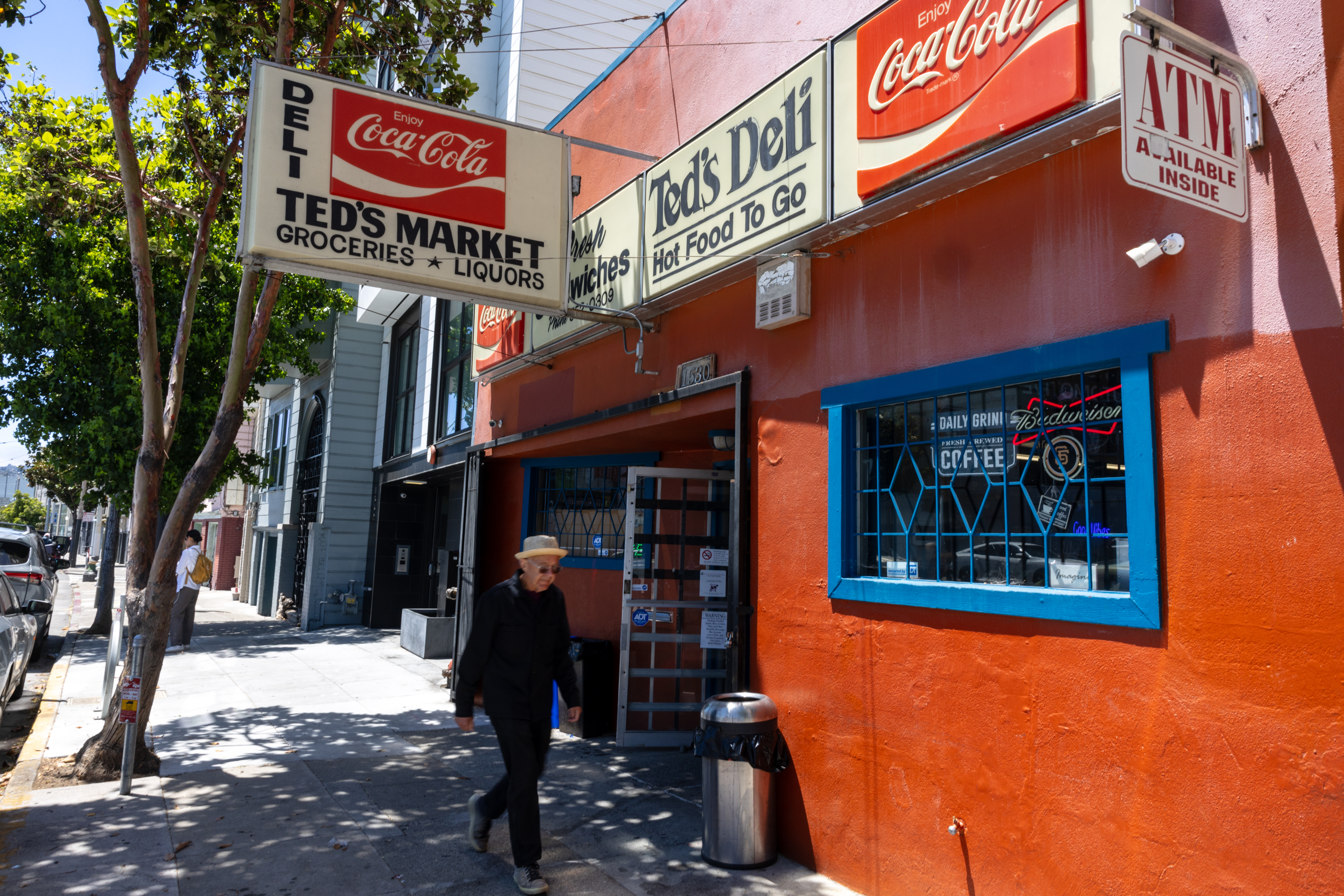Ted’s Market customers know what type of service they’ll get at the famed San Francisco deli: warm greetings shouted from behind the counter upon entry, gregarious smiles and tried-and-true quality sandwich combinations.
Ted’s Market, a mom-and-pop shop and deli in SoMa, opened in 1976 and is a well-known staple in the neighborhood. But even as a popular local shop, running a small business is tough, and keeping it in the family is proving to be something of an existential crisis.
“It’s becoming more and more stressful in San Francisco. Rising wages. Taxes. Tickets left and right. Updated codes,” said Diaa Askandafi, the owner of Ted’s Market.
With the San Francisco minimum wage having increased to $18.07 on July 1 and inflation hitting small businesses hard, restaurants are struggling to keep prices down. Tourists previously accounted for 35% of sales at Ted’s, Askandafi said. Now the shop mostly serves locals, many of whom are working class, underlining the need to keep prices low, he said.
Askandafi said he works up to 18 hours a day, seven days a week. A similar schedule was echoed across three other deli owners The Standard spoke to: James Choi, owner of Rhea’s Deli in the Mission, said he hasn’t taken scheduled time off in 14 years.
“I don’t want my kids to have the same stress,” Askandafi said.
George Bazlamit, co-owner of Church Street Groceteria in the Castro, told a similar tale. The family-owned deli and shop have been serving the community for over 35 years, Bazlamit said.
“These kinds of things will never last. Max, 15 years longer,” said Bazlamit, who told The Standard he doesn’t want his children taking over the store.
Despite Bazlamit’s love for the job where he interacts with people daily in a beautiful city, he hopes his kids will get 9-to-5 desk jobs.
“We open at 9 a.m., but I’m at the warehouse at 5 a.m.,” he said. “When I came here, this was what the middle class did. We had no choice then.”
Tina, who declined to give a last name, is the owner of Guerrero Market & Deli in the Mission and shares similar hopes for her children. Her two sons spend most afternoons sitting on the couch behind the counter, watching their mother work. She glances back at them and said she continually emphasizes the importance of getting an education.
The story is a familiar one: Family members immigrate to the U.S., open a small business and work hard to send their children to school so they can lead better and easier lives. But what happens to the shop?
Monika Hudson, director of the University of San Francisco’s Gellert Family Business Center, says this is something she sees often when working with businesses to transition to the next generation.
“The challenge has come because many of the children have gone to college,” Hudson said. “They see how hard their parents have worked to support them and the family, and they’re frankly not interested in a similar kind of situation.”
Succession planning then becomes an important part of the longevity of a business. One option is to sell to an interested employee; another is to form a worker-owned cooperative.
San Francisco City Hall offers several programs to help small businesses as well. The SF Legacy Business Program is perhaps the most well-known. The program focuses on assisting businesses that have operated in San Francisco for over 30 years through grants, marketing and rent stabilization.
If the next generation does choose to take over, Hudson said they can choose their own path with it.
“They can choose to take the business in a different direction than the parents,” Hudson said.
Rhea’s Deli owner Choi is a fan of this idea. “When I was 18, I told my dad: ‘I really appreciate what you do for the family, but me being Korean and growing up in the United States, I can’t be a corner store owner and I won’t be able to continue our family business.’”
Choi spent several years pursuing other careers in sales and trading before returning to the city to take over the business due to his father’s ailing health.
Running a small local business turned out to be exactly what he wanted to do with his life, allowing him to combine his love of cooking with his passion for customer service. Somewhat blinded by the fear of becoming the “stereotype” of the Korean corner store owner, he said he realized soon enough what a big opportunity owning a small local business could be.
“I tell that story all the time to my kids because it’s like: ‘Look how ignorant I sounded at 18. If I had two brain cells, I could turn the business into anything I wanted,’” Choi said.
Choi said he feels blessed to run a successful deli that brings Korean-inspired elements to classic recipes, such as his popular Korean steak sandwiches.
